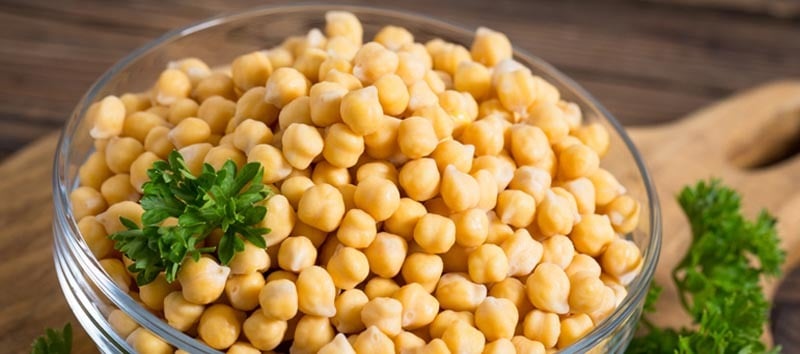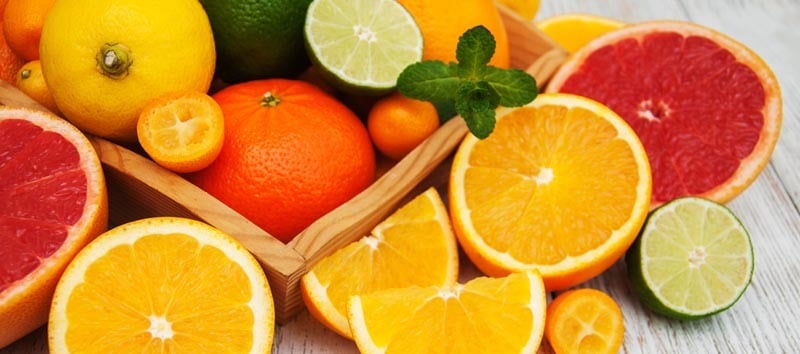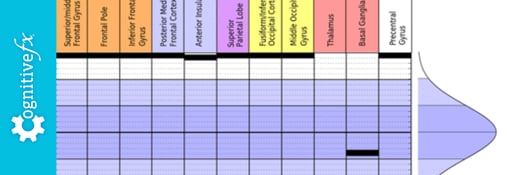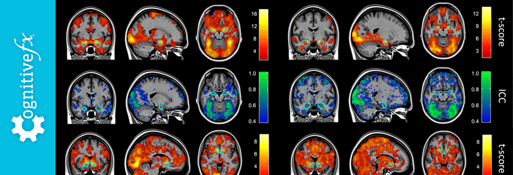Objective and Subjective Measurements in Our Research
Any good scientist knows that in every good data set there must be a way to look at the data objectively and subjectively. Without both types of data, it can be hard to have a full picture and...
Published peer-reviewed research shows that Cognitive FX treatment leads to meaningful symptom reduction in post-concussion symptoms for 77% of study participants. Cognitive FX is the only PCS clinic with third-party validated treatment outcomes.
READ FULL STUDYDid you know that folate comes from the Latin word folium, which means leaf? Folate is a naturally occurring form of the vitamin B9. Folate is a water-soluble vitamin that has many important functions in your body. Some of the important functions folate aides in are the creation of DNA and RNA, formation of neurotransmitters, and the formation of the nervous system during pregnancy. Folate is also known to help with depression, mental fatigue, and irritability because it can be quickly broken down and supply the body with energy. (this is why drinks like 5-hour energy contain B9 along with other B vitamins).
Folic acid is a synthetic form of vitamin B9. It is used in supplements and is added to processed food products like flour and your family’s favorite breakfast cereals. Unlike the naturally occurring folate found in foods, folic acid is not converted to the active form of vitamin B9, methylfolate, in the digestive system. Folic acid is actually converted in the liver or other tissues. This process is slow and not efficient, so the dose of folic acid taken may not be metabolized until the next dosage is consumed.
Folate is important for the proper functioning of the nervous system at every stage in life. It is well known that pregnancy being deficient in folate during pregnancy can increase the risk of a variety of birth defects. A research article by E H Reynolds concluded that infants, children, and adolescents deficient in folate developed slower, seizures, and psychiatric symptoms.
The same article discussed that adults who presented with a folate deficiency, about two thirds also showed to have neuropsychiatric disorders. He mentions how over the past 35 years studies were conducted and showed that a folate deficiency was linked with mental symptoms like depression and cognitive decline in the populations studied.
We have compiled a list of 3 healthy foods that are naturally rich in folate. These naturally rich foods can help you and your family meet the daily recommended values of folate through foods you already know and love!
Avocados are popular due to their texture and flavor. In addition to their unique taste, avocados are an excellent source of important nutrients, including folate.
Did you know that half of a raw avocado contains 82 mcg (micrograms) of folate? Which is about 21% of what you need for your daily nutritional value for the day. Also, avocados contain manganese, copper, iron, magnesium, zinc, and vitamin A.
Asparagus is low in calories, cholesterol and fat. This makes it a great vegetable for a variety of reasons. In addition to being an excellent source of potassium and fiber, four spears of asparagus contain around 85 mcg of folate. A single half-cup serving of cooked asparagus contains about 134 mcg (micrograms) of folate or about 34% of what you need for your daily nutritional value for the day.
Asparagus is also rich in antioxidants and has been shown to have anti-inflammatory and antibacterial properties.

Chickpeas, also known as garbanzo beans, contain around 142 mcg (micrograms) of folate per cup. That means your favorite Sabra hummus dip is even healthier than you thought!
Adding eggs to your diet is a great way to boost your intake of various essential nutrients, including folate. One large egg contains 23.5 mcg (micrograms) of folate or about 6% of the daily recommended value.
Including even a few servings of eggs in your diet, each week is an easy way to boost your folate intake. Eggs are also loaded with protein, selenium, riboflavin and vitamin B12.
Not only do beets provide a burst of color to main dishes and desserts, but they are also rich in important nutrients. They contain a lot of the manganese, potassium and vitamin C that is recommended for an individual’s daily intake.
Beets are also a great source of folate, a cup of raw beets containing 148 mcg (micrograms) of folate, or about 37% of the recommended daily intake.
Leafy green vegetables such as spinach, kale, and arugula are low in calories and bursting with many key vitamins and minerals, including folate.
One cup of raw spinach provides 58.2 mcg (micrograms), 15% of the daily recommended intake. Leafy greens are also high in fiber and vitamins K and A and have been associated with a host of health benefits.
Studies show that eating more cruciferous vegetables, such as leafy greens, may be associated with reduced inflammation, a lower risk of cancer and increased weight loss.

Citrus fruits are especially rich in folate. Just one orange holds about 50 mcg (micrograms), about ten percent of what you need for your daily nutritional value for the day. A glass of orange juice can contain even more, especially if it has been fortified with folic acid.
This nutritious vegetable belongs to the cruciferous family of vegetables and is closely related to other greens like kale, broccoli, cabbage, and kohlrabi.
Brussels sprouts are brimming with many vitamins and minerals and especially high in folate. A half-cup serving of cooked Brussels sprouts can supply 47 mcg (micrograms) of folate, or 12% of what you need for your daily nutritional value for the day.
This cruciferous vegetable is another great source of folate, with about 104 mcg (micrograms) of folate per cup. This super-food is also a great source of vitamin C, calcium, iron and fiber.
Beef liver is not something that most people think of making for dinner these days. But beef liver is actually one of the most concentrated sources of folate available. A 3-ounce serving of cooked beef liver contains 212 mcg (micrograms) of folate or about 54% of what you need for your daily nutritional value for the day. In addition to folate, a single serving of beef liver can meet and exceed the daily requirements for vitamin A, vitamin B12, and copper.
It is much easier than you thought on how to incorporate more folate rich foods in your daily eating habits. You may have not realized just how nutritious some of your favorite foods really are! Understanding the important roles the daily recommendation of vitamins and minerals play in your health is a great way to making a conscious effort into choosing healthier foods to fuel your body.
Everyone at Cognitive FX understands the important role a nutrient-rich diet has on your brain, mood, and the overall health to whether you have a concussion or not. A nutrient rich diet can be easily achieved by having eggs for breakfast, oranges with lunch, or eating a green vegetable with every meal. We encourage everyone to learn more about what it means to have a healthy brain lifestyle.

Any good scientist knows that in every good data set there must be a way to look at the data objectively and subjectively. Without both types of data, it can be hard to have a full picture and...

fMRI (functional Magnetic Resonance Imaging) is often a more sensitive method for detecting brain injury such as concussion than a standard MRI (Magnetic Resonance Imaging) brain scan. fNCI...

Jessica Heath is a Neurological Occupational Therapist here at Cognitive FX.
Jessica received her degree in Occupational Therapy from the University of Utah. Jessica has mostly worked with...

Long before Cognitive FX was created, Dr. Mark Allen, PhD, and Dr. Alina Fong, PhD began searching for a greater understanding of the brain. Their focus has been on how the brain works and how each...

The Hariri lab at Duke University recently published a review that questions the reliability of task-based fMRI as used to examine individual patients.

By Brittany Prijatel, Sports Psychology Consultant
With the new year comes new changes. I would like to give you 6 ways to help you identify changes that you want to make and how to fit them into a...
Published peer-reviewed research shows that Cognitive FX treatment leads to meaningful symptom reduction in post-concussion symptoms for 77% of study participants. Cognitive FX is the only PCS clinic with third-party validated treatment outcomes.
READ FULL STUDY